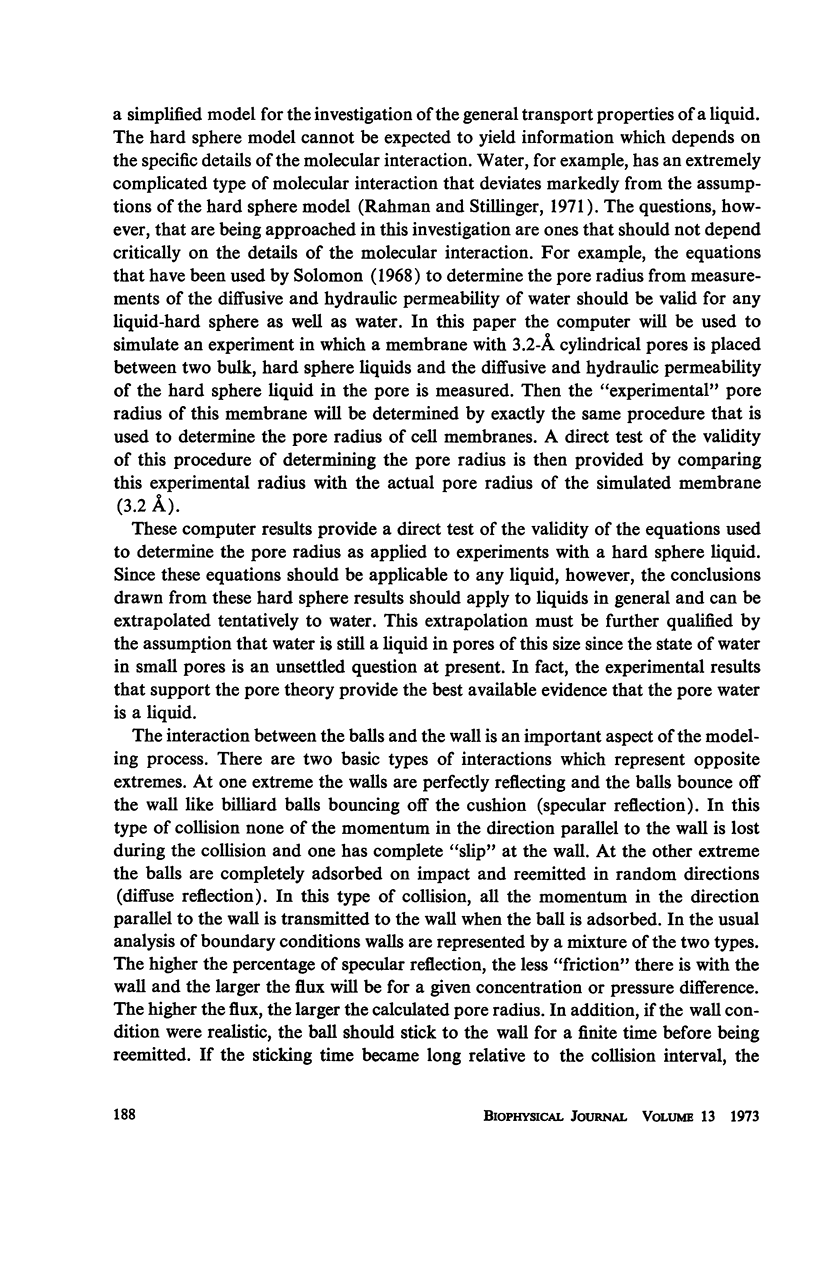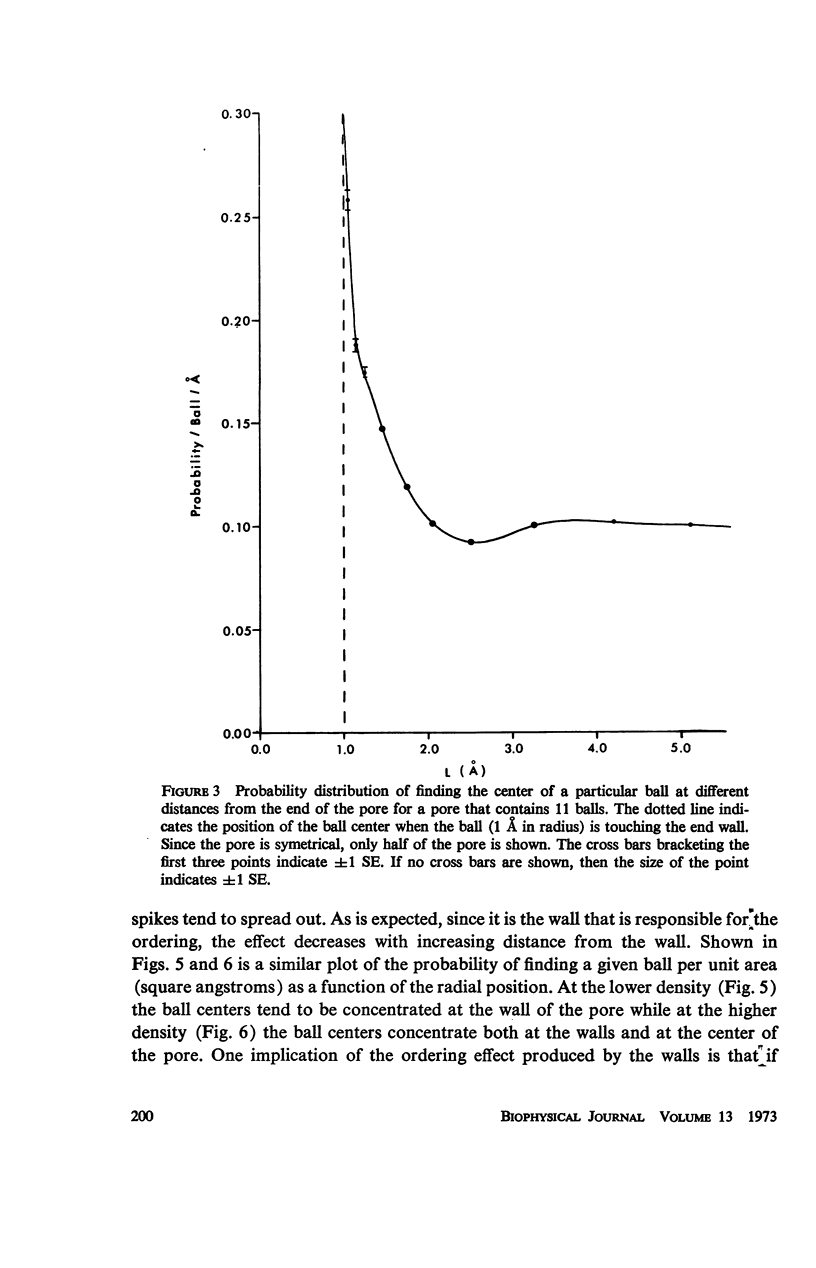Abstract
The kinetics of transport in pores the size postulated for cell membranes has been investigated by direct computer simulation (molecular dynamics). The simulated pore is 11 Å long and 3.2 Å in radius, and the water molecules are modeled by hard, smooth spheres, 1 Å in radius. The balls are given an initial set of positions and velocities (with an average temperature of 313° K) and the computer then calculates their exact paths through the pore. Two different conditions were used at the ends of the pore. In one, the ends are closed and the balls are completely isolated. In the other, the ball density in each end region is fixed so that a pressure difference can be established and a net convective flow produced. The following values were directly measured in the simulated experiments: net and diffusive (oneway) flux; pressure, temperature, and diffusion coefficients in the pore; area available for diffusion; probability distribution of ball positions in the pore; and the interaction between diffusion and convection. The density, viscosity, and diffusion coefficients in the bulk fluid were determined from the theory of hard sphere dense gases. From these values, the “equivalent” pore radius (determined by the same procedure that is used for cell membranes) was computed and compared with the physical pore radius of the simulated pore.
Full text
PDF




















Selected References
These references are in PubMed. This may not be the complete list of references from this article.
- Beck R. E., Schultz J. S. Hindrance of solute diffusion within membranes as measured with microporous membranes of known pore geometry. Biochim Biophys Acta. 1972 Jan 17;255(1):273–303. doi: 10.1016/0005-2736(72)90028-4. [DOI] [PubMed] [Google Scholar]
- Solomon A. K. Characterization of biological membranes by equivalent pores. J Gen Physiol. 1968 May;51(5 Suppl):335S+–335S+. [PubMed] [Google Scholar]


